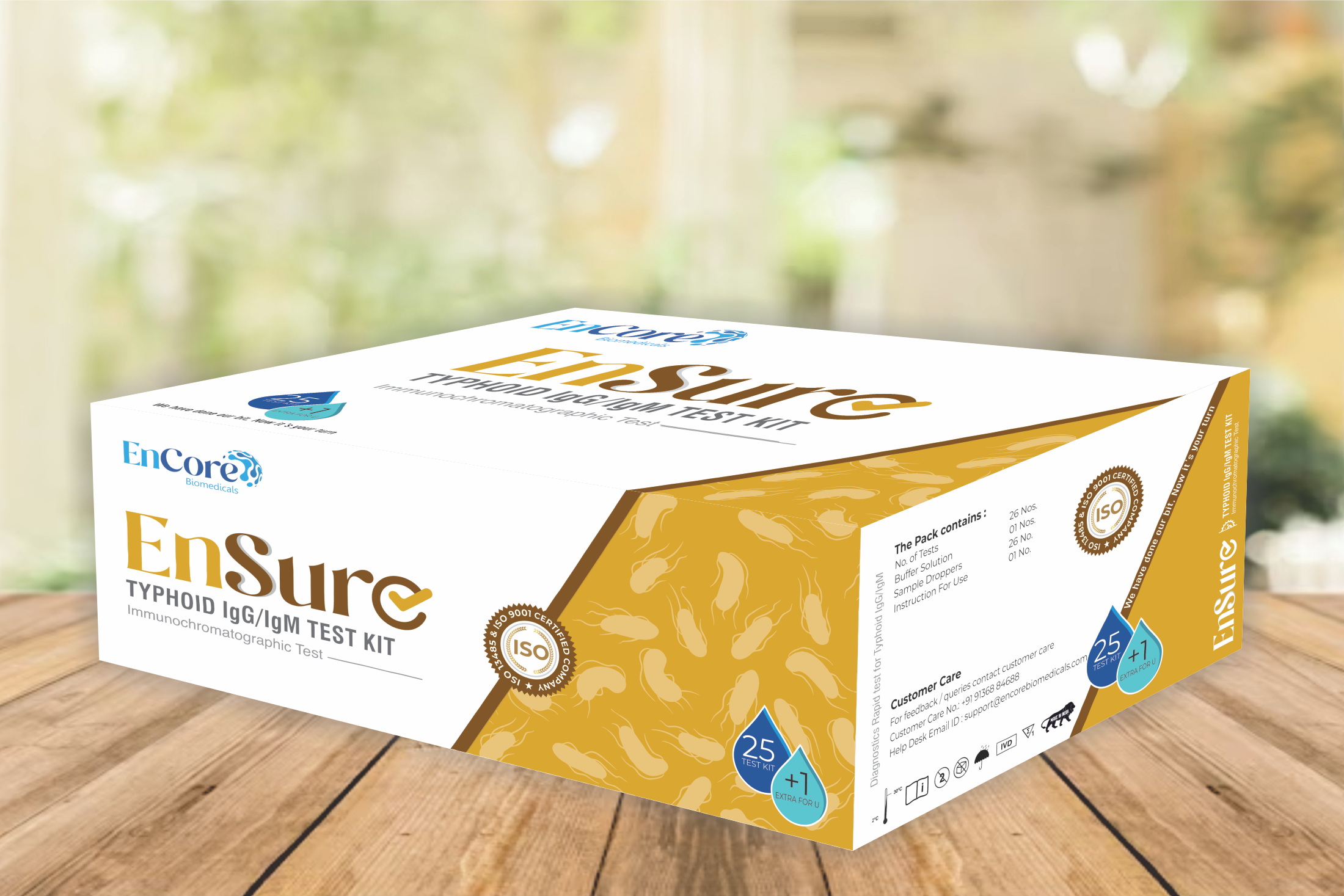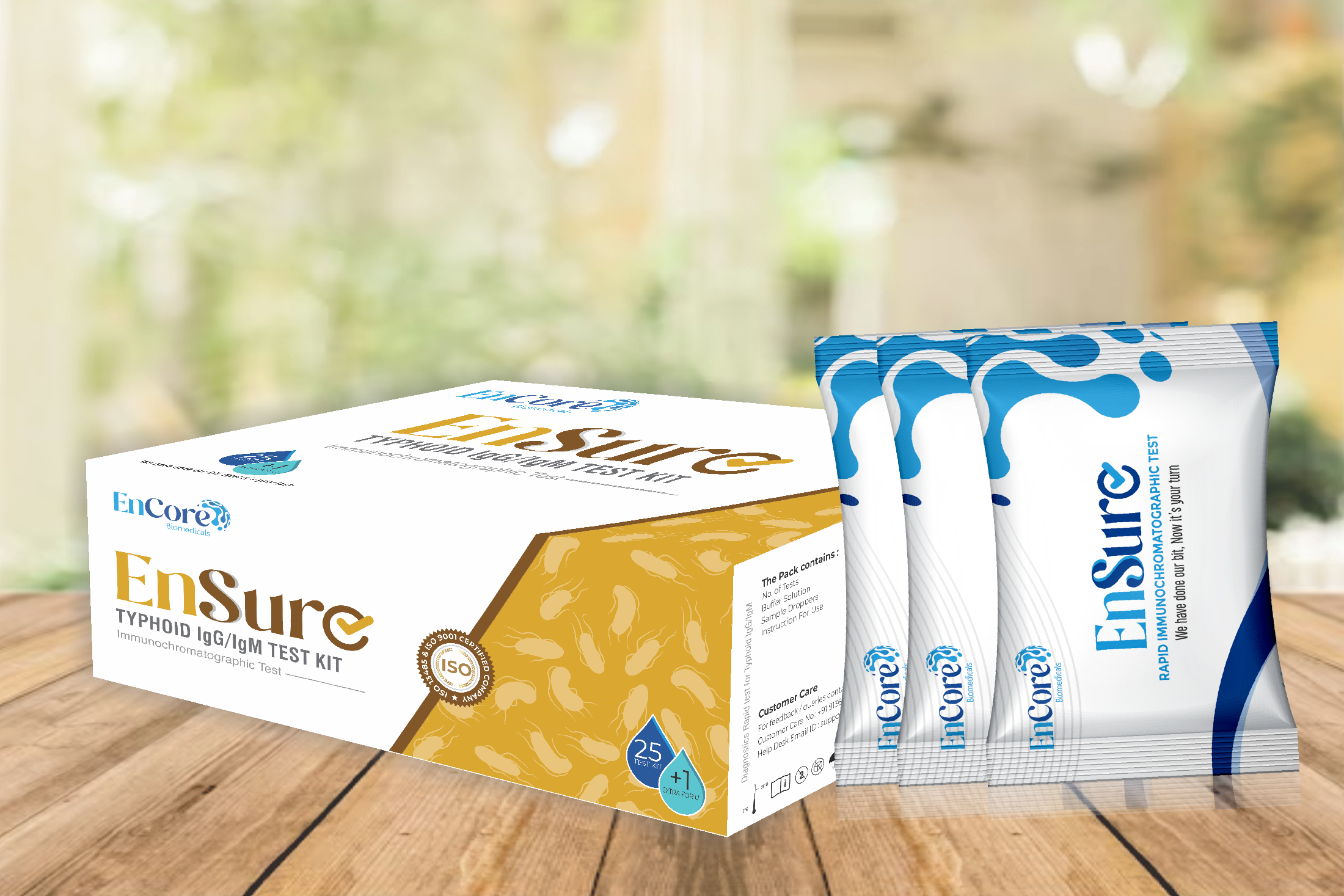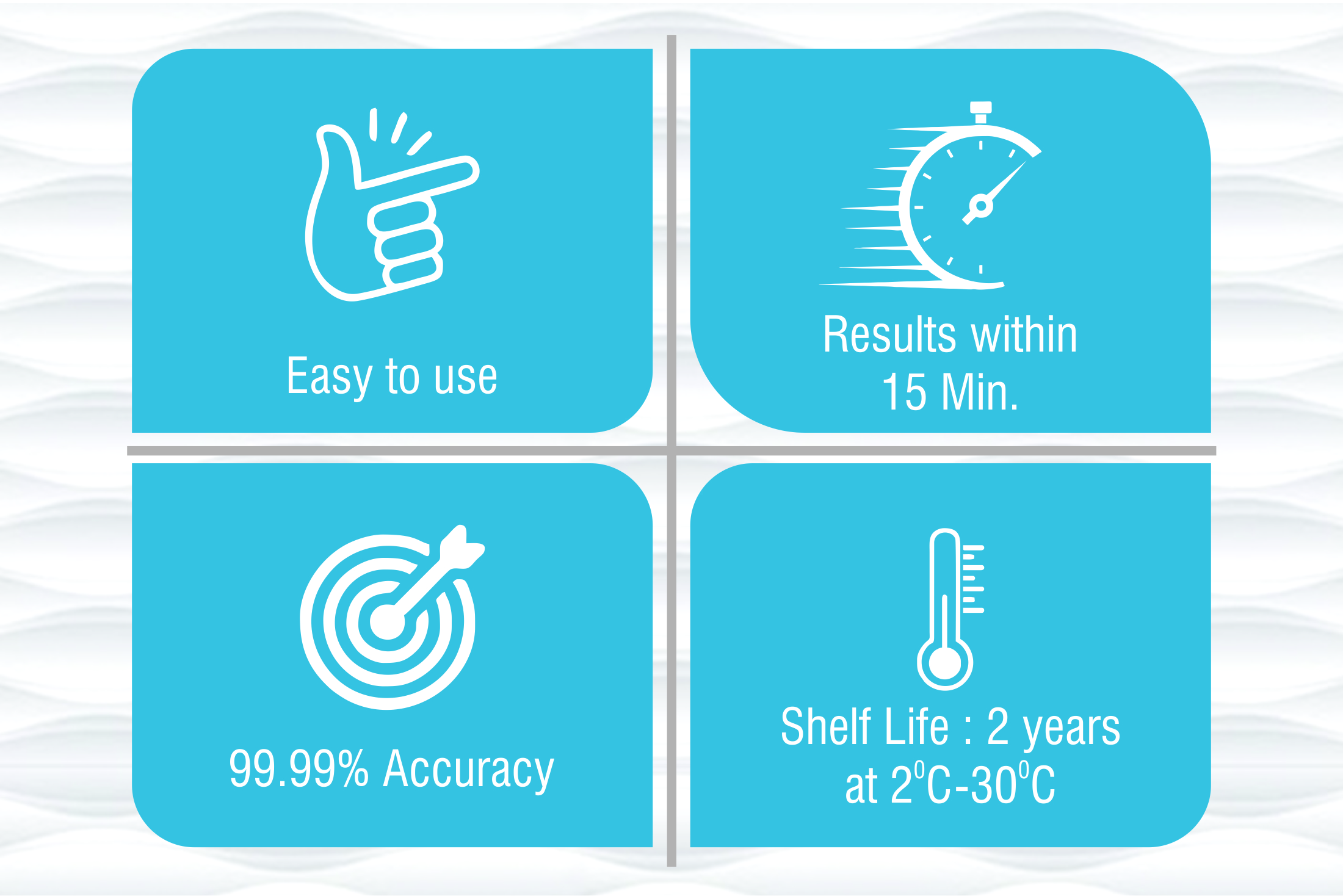Enssure Typhoid IgG/IgM Assay kit
Typhoid IgG/IgM is a vital tool in the diagnosis of typhoid fever, a systemic and protracted illness caused by Salmonella typhi. This disease is transmitted through the consumption of contaminated food or water. Accurate and early diagnosis is crucial for identifying carriers and preventing outbreaks. The test detects IgM antibodies in the early phase, suggesting acute typhoid, and both IgG and IgM in the middle phase of infection, indicating a high rate of transmission in endemic areas. Unlike traditional tests, EnSSure Typhoid IgG/IgM offers a more efficient and reliable method for diagnosing and monitoring typhoid fever, contributing to better public health outcomes.
Stock: IN
Typhoid IgG/IgM
Product Information
Intended Use:
Rapid Typhoid IgG/IgM test is a lateral flow chromatographic immunoassay for the qualitative detection of Typhoid IgG/IgM Antibodies of S. typhi and S. paratyphi in human blood/serum/plasma.
Principle:
The Typhoid IgG/IgM Antibody test utilizes lateral flow chromatography. Upon adding serum, plasma or whole blood to the device, the sample interacts with colloidal gold particles conjugated with Typhoid-specific recombinant antigens. If Typhoid IgM or IgG antibodies are present, a complex forms, leading to the appearance of colored bands at respective IgM and IgG test lines. The control line always appears, ensuring accurate results—both test and control lines signal a positive outcome, while only the control line indicates a negative result when the test is conducted correctly.
Testing Procedure
Importance to know
Warnings and Precautions
- Please read the instruction carefully before performing the test.
- Do not use the test after the expiration date.
- Immediately carry out the test after removing the test device from the pouch.
- Do not mix or interchange the specimen sample.
Limitation
- This is a qualitative test only. The intensity of test band does not have liner correlation to antibody titre in the specimen.
- The negative test result indicates absence of detectable antibodies. However, it does not preclude the possibility of exposure to S. typhi or paratyphi.
- The results obtained with this test should only be interpreted in conjunction with other diagnostic procedures and clinical findings.



